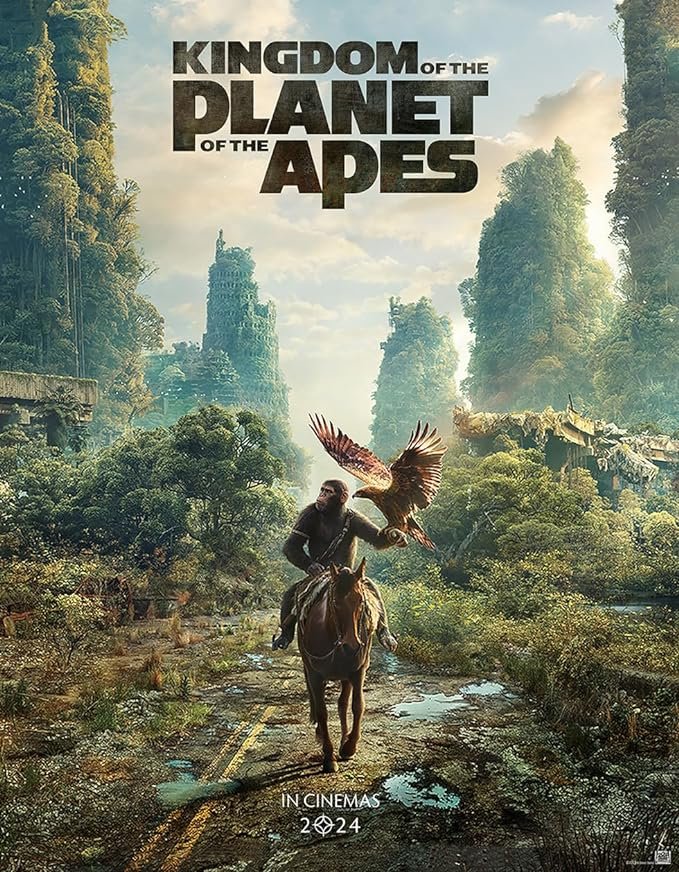The legacy of the Planet of the Apes franchise looms large over cinema, with its iconic imagery and thought-provoking narratives captivating audiences for generations. With each installment, the series has delved deeper into themes of power, morality, and the complexities of the human condition. Now, with “Kingdom of the Planet of the Apes,” directed by Wes Ball, audiences are once again invited to journey into a world where apes and humans collide in a battle for survival and supremacy.
Set many years after the reign of Caesar, the film introduces us to a new generation of apes, led by a young protagonist whose journey will challenge everything he knows about the past and shape the future of both apes and humans alike. While some may question the need for another installment in the franchise, “Kingdom of the Planet of the Apes” proves to be a worthy addition, offering a fresh perspective on familiar themes and introducing compelling new characters.
One of the strengths of the film lies in its visual storytelling. Director Wes Ball brings his signature style to the project, infusing the action sequences with a sense of urgency and grittiness that keeps audiences on the edge of their seats. From abandoned cities overrun by nature to rusted-out boats littering the beaches, the film paints a vivid picture of a world reclaimed by the wilderness, offering a stark contrast to the bustling metropolises of the past.
Central to the film’s narrative is the character of Noah, a young ape whose journey of self-discovery serves as the heart of the story. Portrayed with depth and nuance by Owen Teague, Noah grapples with questions of identity and purpose, struggling to reconcile the teachings of his ancestors with the realities of the world around him. As he embarks on a quest for revenge, Noah is forced to confront the legacy of Caesar and the implications of his actions for both ape and human alike.

One of the film’s most compelling aspects is its exploration of the relationship between apes and humans. As the two species vie for dominance in a world ravaged by conflict, the lines between friend and foe become blurred, forcing characters on both sides to confront their preconceptions and prejudices. Through clever dialogue and subtle characterization, the film challenges audiences to reconsider their assumptions about power, morality, and the nature of humanity itself.
While “Kingdom of the Planet of the Apes” may not reach the lofty heights of its predecessors, it nonetheless stands as a worthy addition to the franchise, offering a thrilling blend of action, drama, and social commentary. With its stunning visuals, compelling characters, and thought-provoking themes, the film is sure to captivate audiences and reignite their passion for one of cinema’s most beloved sagas.
In the end, “Kingdom of the Planet of the Apes” is more than just a movie—it’s a testament to the enduring power of storytelling and the boundless imagination of those who dare to explore new worlds and challenge the status quo. As audiences embark on this latest adventure, they are reminded once again of the timeless appeal of the Planet of the Apes franchise and the endless possibilities that lie ahead.
